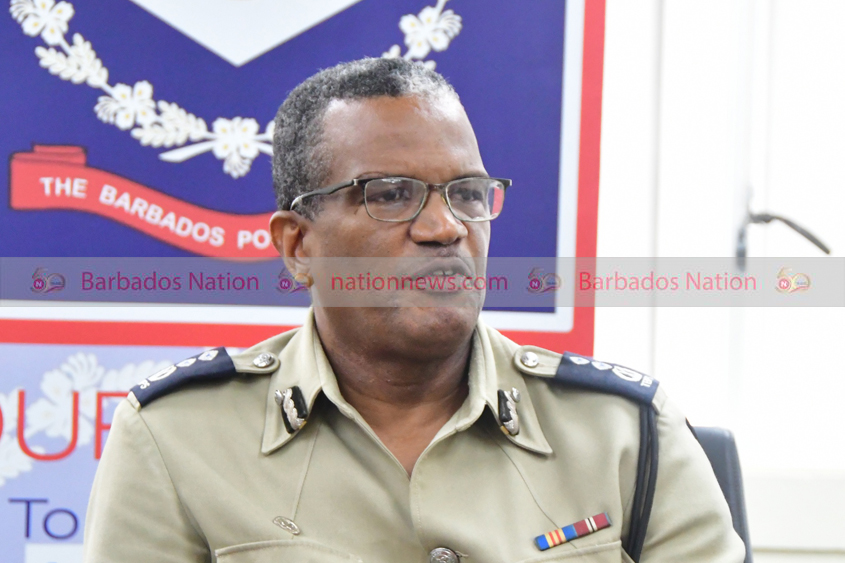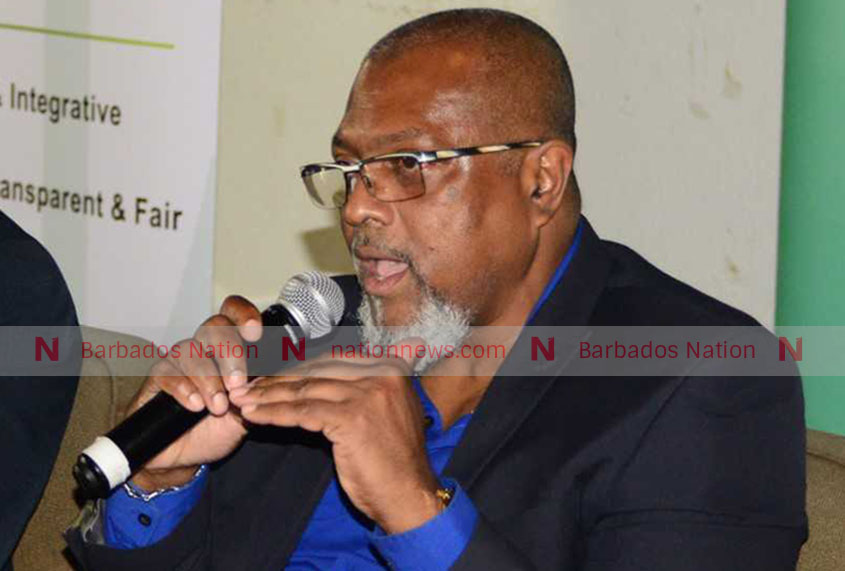

In light of sunday’s daylight shooting at a gas station that left a customer dead and an employee injured, a call is being made for businesses to integrate violenceresponse protocols into their health and safety training.
It is coming from behavioural scientist Professor Dwayne Devonish, who is warning that failure to address this issue could have broader implications, including the potential to dampen participation in Government initiatives such as We Gatherin’.
Two of the three homicides so far for the year have involved the use of firearms. The murder of 46-year-old Mitchell Boyce at Kirtons in St Philip on Sunday morning follows another shooting death – that of 30-year-old Vere Hoyte – in Checker Hall, St Lucy, on January 9.
These brazen acts, including multiple gunshots being fired across a pasture in The Pine, St Michael, on Sunday, January 5, resulting in people being injured, and adults and children running for their lives, have caused widespread public concern and raised questions about safety in public spaces.
Devonish emphasised the psychological and social ramifications of such events, with heightened fear and anxiety among the population.
“If these incidents continue to escalate, we can expect a rise in public anxiety and a potential decline in participation in public events,” he said. “For example, if this kind of violence occurred during major cultural events or at gatherings related to We Gatherin’, it could significantly impact attendance and the overall success of such initiatives.”
He said businesses needed to adapt their health and safety protocols to include training on responding to violent situations. He also highlighted the importance of providing psychosocial support for employees who might be traumatised by such incidents.
“Health and safety is typically focused on accidents like spills or falls. However, it must now evolve to address violent incidents that could occur on or near business premises. Employers should also provide counselling and other forms of support for workers affected by such traumatic events.”
He urged businesses to consider their proximity to crime hotspots when assessing safety measures, with establishments such as gas stations and restaurants particularly vulnerable. Recent incidents have demonstrated how quickly violent crimes can disrupt operations and impact employee well-being, he added.
In terms of the economic impact, Devonish said public fear could deter people from visiting establishments or attending events.
“Businesses operating near known crime areas may experience reduced foot traffic and revenue as people avoid those spaces. The psychological impact on employees working in such environments must also be a priority for employers.”
Employees, he argued, should also take responsibility for their own vigilance and awareness.
“It can’t just be employers taking the brunt of the responsibility. Both employers and employees must come
together to ensure vigilance and invest in the right health and safety resources and training to navigate these challenges.”
Sheena Mayers-Granville, executive director of the Barbados Employers’ Confederation (BEC), echoed Devonish’s concerns and called for proactive measures to ensure workplace safety.
She highlighted the steps that some members of the BEC had already taken, such as participating in training programmes and developing policies to address workplace violence. She also pointed to past collaborations between employers and law enforcement, including the provision of mobile police stations and improved lighting in high-risk areas.
Mayers-Granville stressed the importance of ongoing vigilance, noting that safety protocols must be regularly reviewed and updated to reflect the current security climate. She spoke of the need for a comprehensive approach to safety that extends beyond physical security to include data protection, particularly as businesses become increasingly reliant on digital systems.
“We are committed to fostering a culture of security in the workplace, ensuring not only the physical safety of employees and customers, but also the protection of sensitive data in an increasingly digital world. The recent rise in violent crime is deeply concerning and has shaken us all. We are continuously reviewing our safety procedures to ensure they reflect what is happening in the community.”
Both she and Devonish agreed that improving public trust in law enforcement was crucial. Devonish said police must bolster their efforts in intelligence gathering and strengthen relationships with communities. He noted that public reluctance to report crimes often stemmed from fear of reprisal or a lack of trust in the police.
“The police cannot do their job alone. It requires a collaborative effort where the public feels confident in reporting crime. Building trust and partnerships with communities is essential for intelligence gathering and preventing violent offences,” he said.
There was also a gun attack on staff of a fast-food outlet who were being transported home in the wee hours of January 6.
Mayers-Granville said employers remained deeply committed to ensuring the well-being of their employees and customers.
“We will continue to collaborate with Government, law enforcement and the wider community to address these challenges. Our priority is, and always will be, the safety and security of our people.” (CLM)





